Home / Tulane Institute for Water Resources Law & Policy receives fellowship grant
Tulane Institute for Water Resources Law & Policy receives fellowship grant
August 23, 2023 11:15 AM
|
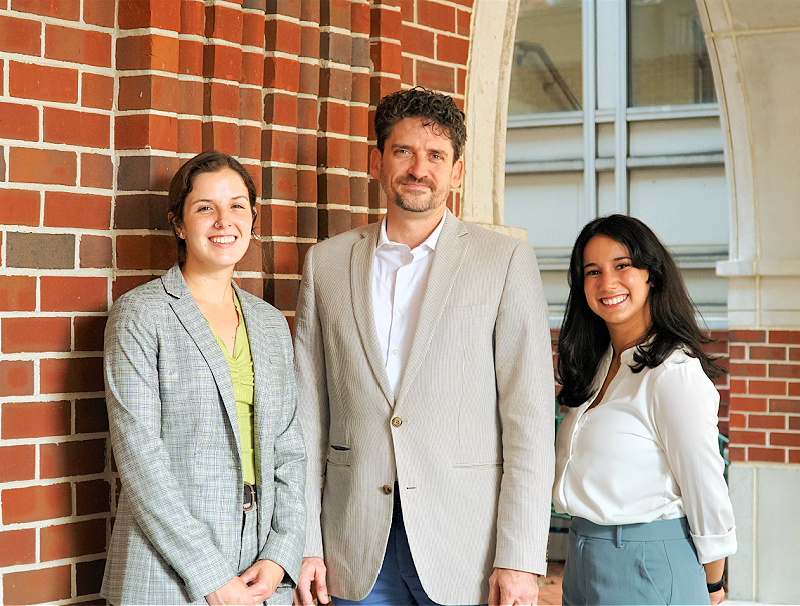
L-R The current Willam B. Wiener Jr. Fellows Haley Gentry (L'22, left) and Ximena De Obaldia (LLM '23, right) with Institute for Water Resources Law & Policy Director Christopher Dalbom (L'12). The Fellows will help produce timely research for government agencies, environmental nonprofits, legislatures, and community organizations as well as author white papers and policy research. (Photo: Alina Hernandez)
For more than a decade, Tulane’s Institute for Water Resources Law & Policy has hosted two post-graduate fellows each year to conduct research on the pressing environmental legal issues affecting waterways.
The prestigious fellowship has provided young legal scholars with invaluable experience – their work has been noted in policy papers and legal briefings – helping them to land key roles within government, law firms, academia, nonprofits, and the courts.
The Fellows, whose alumni ranks include Christopher Dalbom (L’12), the Director of the Institute, are working in places such as the National Audubon Society, Louisiana’s Governor’s office, academia, the Louisiana Fourth Circuit Court of Appeals, and top law firms.
Now, thanks to a grant from the William B. Wiener, Jr., Foundation, in collaboration with the Rockefeller Family Fund, the Institute’s fellowship is fully funded for the next five years, securing the continuity of a program that has contributed extensively to the scope and breadth of Tulane’s expertise in water law and environmental policy. And in a broader space, Tulane’s Fellows have influenced national policy on all things water law.
"Our Fellows have gone on to influence important work across the country and beyond. I couldn’t be prouder of them and the program,” said Dalbom, who is a mentor to the Fellows. “While they are gaining experience that serves them in every walk of law and policy life, their dedication and innovation allow the Institute’s own work to have an impact far greater than our small staff ever could otherwise.”
The Willam B. Wiener, Jr. Fellowship will support not only the Fellows’ salaries but also their academic work, Dalbom said. William Wiener Jr. hails from one of the founding families of Shreveport and is an artist, architect and activist who espouses numerous civic and philanthropic causes, among them environmental stewardship. Many of the family’s members have attended Tulane, and some Tulane Law School, including William's first cousin, Fifth Circuit Court of Appeals Judge Jacques Wiener (A&S ’56 L'61).
Judge Wiener’s son, Don Wiener (L’88), is President of the William B. Wiener, Jr. Foundation and, together with Jeff Weiss (L’86) who is Vice President of the Foundation, helped facilitate the gift for the Institute, in part to honor William's passion for environmental interests. This year, Don is also the co-chair of the Law Class of 1988 Reunion Committee.
Since the start of the Fellowship program, these young scholars have helped to raise the capability and scope of the work of the Institute. Working alongside Dalbom and Tulane Center for Environmental Law Director Mark Davis, and a handful of Visiting Scholars like Tulane alum James Nieset (L’67), the fellows help produce timely research for government agencies, environmental nonprofits, legislatures, and community organizations. They help author white papers and policy research, too. The Fellowship’s alumni have gone on to careers as varied as their backgrounds, impacting policy and case law throughout.
__________________________________
Here are just a few of the former water law Fellows whose work is notable:
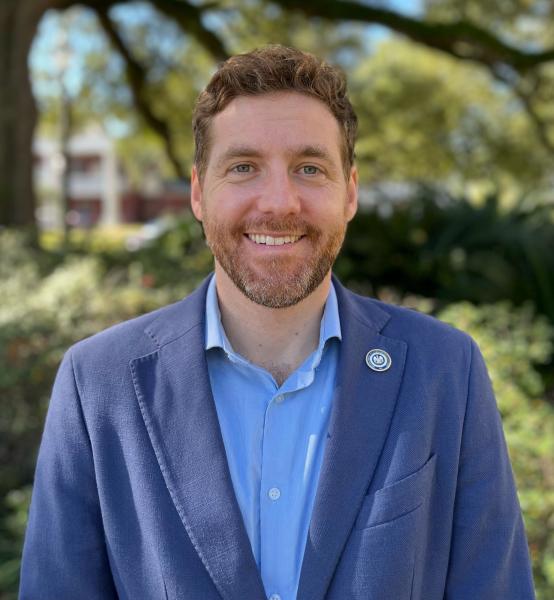 Harry Vorhoff (L’13) joined the Institute just after graduation. Deeply passionate about environmental law, he wasn’t sure where he would land after graduation.
Harry Vorhoff (L’13) joined the Institute just after graduation. Deeply passionate about environmental law, he wasn’t sure where he would land after graduation.
A decade later, Vorhoff chairs Governor Edwards’ Climate Initiatives Task Force which worked to produce the state’s first-ever Climate Action Plan. He is the Deputy Director of Coastal Activities in the Governor's Office and continues to work with a politically divided legislature to find common ground to lower carbon emissions and increase coastal protection and restoration.
“Through the Fellows program, I was able to gain a deeper understanding of the legal framework and policies governing and guiding coastal restoration and protection in Louisiana as well as water-related issues worldwide,” said Vorhoff who often seeks expert research from his former colleagues at the Institute. “This deeper understanding has been critical in helping me to navigate not only the issues facing Louisiana but also the opportunities to address those issues.
Vorhoff said the Fellows program allowed him to look beyond what is immediately pressing or on fire and think about systemic or impending issues that need attention now to prevent them from getting worse in the future. That kind of thinking shapes how he does his job, particularly when he must align diverse stakeholders to work toward change.
“To me, the Fellows program is the functional equivalent of an LLM in coastal and water law, which has helped prepare me for my career working in those issues.”
Vorhoff said his work as a Fellow has directly informed his prior work as an Assistant Attorney General and Environmental Section Chief in the La. Department of Justice and his current work as Deputy Director of Coastal Activities in the Governor’s Office.
“The institutional knowledge on these issues at Tulane is truly unparalleled,” he said. “This institutional knowledge was gained not just through thoughtful and solid research but also through relationships with other leaders and implementers in coastal and water law and policy.
 Thuy Le (L’20) had an idea that she wanted to do something with environmental law, but even after taking all the environmental courses that her schedule could fit and serving as Editor-in-Chief of the Environmental Law Journal, she still wanted to know more. After graduation, she landed one of the water law fellowships – it made all the difference, she said.
Thuy Le (L’20) had an idea that she wanted to do something with environmental law, but even after taking all the environmental courses that her schedule could fit and serving as Editor-in-Chief of the Environmental Law Journal, she still wanted to know more. After graduation, she landed one of the water law fellowships – it made all the difference, she said.
“I cannot understate how beneficial it was for me to be enveloped in a world where I read, lived, breathed, and vacationed water law. Water took on a new role in the world for me, and I learned so much more about our impacts and responsibilities as stewards of it,” she said.
The intense work culminated in her writing a law journal article that was published this summer by the Tulane Environmental Law Journal. But she says the experience also helped her land a job.
“I'm grateful for my colleagues in the Water Law Institute because that article would not exist without them,” Le said. “ It is also because of the knowledge I've gained that I was able to acquire an attorney position at Kanner & Whiteley.”
Le works on environmental law cases at the New Orleans firm as a staff attorney. As Special Counsel for the New Jersey Department of Environmental Protection, she often deals with issues of natural resources damages and public trust doctrine issues. But even though her work with Kanner & Whiteley is mostly outside Louisiana, she tries to make a point to contribute to the Louisiana legal community. As part of her pro bono work, she has been working to establish the local Vietnamese American Bar Association in hopes of providing access to legal resources for the community, as well as volunteering with the Pro Bono Project.
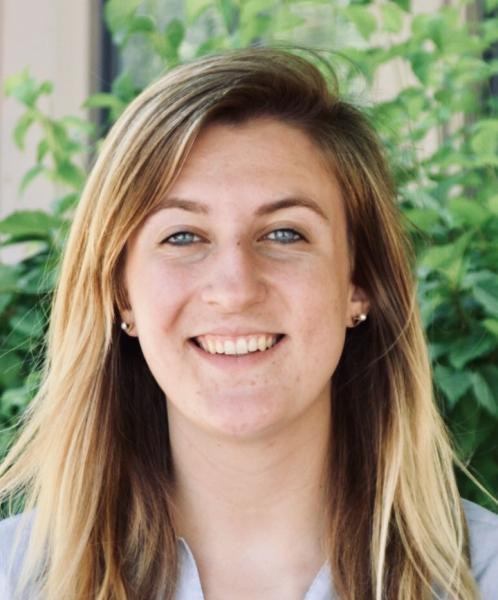 Portia Mastin (L’19) has landed her dream job at the National Audubon Society, where she is a Coastal Conservation Policy Manager. In addition to sharpening her writing and research skills, the Fellowship allowed her to confidently straddle the worlds of environmental law and policy.
Portia Mastin (L’19) has landed her dream job at the National Audubon Society, where she is a Coastal Conservation Policy Manager. In addition to sharpening her writing and research skills, the Fellowship allowed her to confidently straddle the worlds of environmental law and policy.
“The program has helped me in a number of ways in my career – from the substance that I researched and wrote about, such as critical issues to Louisiana’s coastal resilience and water resource management, to the connections that I made throughout the environmental legal and policy world that I still utilize,” said Mastin. “Without the fellowship program, I do not think I would have found a career that I excel at and enjoy as much as I do.”
The mentorship the Fellows received from Dalbom and Davis is also a huge draw for applicants, and for Mastin, it was a bonus.
“My time as a Fellow has made me feel like I am still a part of the Tulane Institute on Water Resources Law & Policy, and I know that I will continue to have the support of Mark and Chris and my colleagues there throughout my career,” she said.
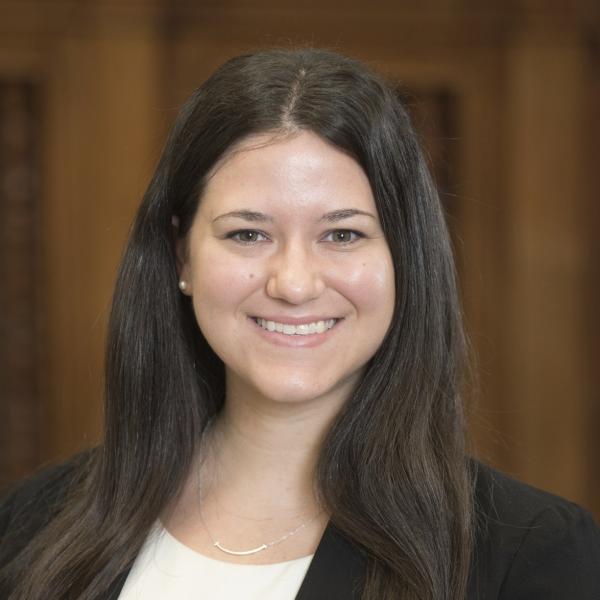 Kristen Hilferty (L’17) didn’t land an environmental law job after her fellowship; instead, she worked at a firm and then with the courts, first as an attorney with the Louisiana Supreme Court and now with the Louisiana Fourth Circuit Court of Appeal where she is a research attorney. The work at the Institute and the skills she learned there have helped her grow in the profession.
Kristen Hilferty (L’17) didn’t land an environmental law job after her fellowship; instead, she worked at a firm and then with the courts, first as an attorney with the Louisiana Supreme Court and now with the Louisiana Fourth Circuit Court of Appeal where she is a research attorney. The work at the Institute and the skills she learned there have helped her grow in the profession.
“During the fellowship, I had to convey our research in a manner that people of all backgrounds would understand; and, similarly, the court must produce opinions that are available for members of the general public,” Hilferty said. “Additionally, I had the opportunity to orally present our research on multiple occasions during my fellowship, which prepared me for intra-office legal discussions at my current job. I believe my fellowship was not only instrumental in me securing my current job but also in my ability to succeed in my position.”
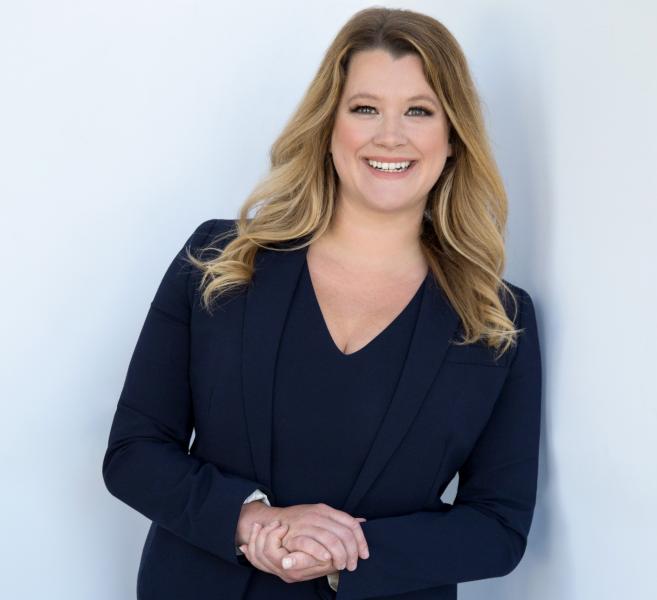 Katherine Van Marter (L’16) is running her own firm in Asheville, N.C. In her work, she finds herself helping clients in real estate transactions that require knowledge of water law and preparing them to be stewards of their land.
Katherine Van Marter (L’16) is running her own firm in Asheville, N.C. In her work, she finds herself helping clients in real estate transactions that require knowledge of water law and preparing them to be stewards of their land.
“My experience with the human element of coastal adaptation has given me the exact skill set I need to succeed as a real estate attorney working with clients in an area where we get a lot of coastal ‘ex-pats’. Many that are from this area genuinely do not value the climate security that we have in this area,” said Van Marter. “Little do they know, the creek behind their home or the grade of their neighbor’s new driveway may provide a great reason to have flood insurance.”
Van Marter has handled issues arising from flooding and FEMA requests, and she had found the fellowship gave her a strong foundation for title work or the “ancestry of a property.”
“I have an inherent understanding of the risks and liabilities, and why a third party (like the government or your neighbor) having an interest in your property can be a difficult path to walk,” she said. “More than that, it has provided me the opportunity to really understand how important home and community are.”
She has some advice for current students, too, especially those who might be interested in pursuing a fellowship with the Institute.
“Use the resources you have when you’re in school, not only from a substantive perspective but also as a guide for how you want to both be and be perceived in your practice. You are worth it,” said Van Marter. “Even if you don’t end up in a policy role similar to your fellowship, the skills you learned during your time with the team reverberate throughout your practice. And stay involved if you can – give back to the program by working collectively with future Fellows and team members where you can.”
__________
The Fellows, says Dalbom, in fact, do give back to the program once they are in practice, which makes the growing list of alumni an invaluable asset for the Institute, Tulane and the communities they serve.
”Since this program started in 2012, we’ve had 14 fellows,” he said. “ It’s intended as a launch pad for a career in law or policy. Water and environmental work, sure, but experience has shown it can function as an introduction to a wide variety of legal careers. I like to joke that it’s successfully launched every career but mine, and while I’ve been sitting here on this TLS launchpad I’ve gotten to witness some pretty incredible rockets take off. I can’t wait to see the next five Wiener Fellows come through and where they’re able to take off to.”
Interested in more about the Fellows' work? Some recent articles:
Haley Gentry, "Navigating the Legal Authorities of the Mississippi River: An Introduction to Key Players and Concepts." A white paper by the Tulane Institute on Water Resources Law & Policy. July 27, 2023.
Isabel Englehart, "Capitalizing on Coastal Carbon: the Role of a Blue Carbon Market in Louisiana's Response to Climate Change and Coastal Land Loss." A white paper by the Tulane Institute on Water Resources Law & Policy. UPDATED June 30, 2023.
Kristen M. Hilferty, Mark S. Davis, and James R. Nieset, "Rights, Duties, and Opportunities--Coastal Conservation, Restoration, and Protection in a Shape-Shifting Coast." A white paper by the Tulane Institute on Water Resources Law & Policy. January 25, 2023.
Portia Mastin, Mark S. Davis, and Christopher Dalbom, "Shelter from the Storm: How Much Hurricane Protection is Authorized for the New Orleans Area?" A white paper by the Tulane Institute on Water Resources Law & Policy. November 13, 2020.
Katherine Van Marter, Mark S. Davis, and Christopher Dalbom, "Investment in Coastal Communities: Financing Options for Coastal Protection and Restoration in Louisiana." A part of Financing the Future, a continuing series of white papers by the Tulane Institute on Water Resources Law & Policy. June 26, 2018.
Mark S. Davis, Harry Vorhoff, and N. Dean Boyer, "Turning Coastal Restoration and Protection Plans into Realities:How Much Is Currently Funded?" ("Financing the Future II"). The second in an occasional series of white papers by the Tulane Institute on Water Resources Law & Policy. November 5, 2015.